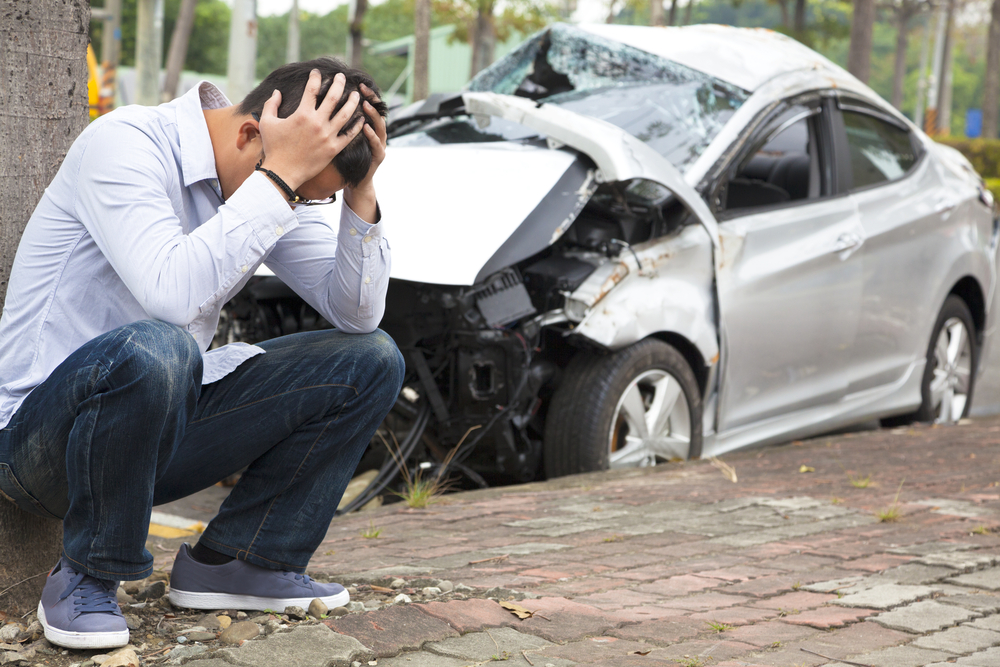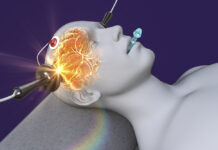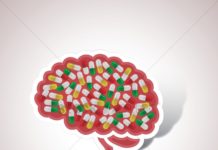In a new article published in Psychopharmacology, Anne Vingaard Olesen and her colleagues explore the correlation between psychotropic drug use and car accidents. Cognitive impairment is an effect of many commonly prescribed psychotropic drugs and a common cause of car accidents. The authors investigated psychotropic drug use and car accidents by comparing data from 130,000 people involved in car accidents to prescription data from Denmark between 1996 and 2018. The present research concludes that using cognitively impairing drugs positively correlates with involvement in car accidents.
The authors suggest that while it may seem tempting to ban psychotropic medication while operating a motor vehicle, this may not be a viable or fair solution. While there does seem to be a link between psychotropic drugs and car accidents, the authors remind us that we accept the increased risk of traffic accidents from many groups, including young drivers and the physically disabled. They write:
“The study shows that the use of psychotropic medication is associated with an increased risk of traffic crashes, but whether these results should lead to driving bans is, as in many other situations in road traffic, a political trade-off between the risk of crashes and mobility.”
 Many commonly prescribed psychotropic drugs cause cognitive impairment. For example, researchers have found that long-term Benzodiazepine use impairs cognitive function. Moreover, this impaired cognition likely remains even after withdrawing from the drug.
Many commonly prescribed psychotropic drugs cause cognitive impairment. For example, researchers have found that long-term Benzodiazepine use impairs cognitive function. Moreover, this impaired cognition likely remains even after withdrawing from the drug.
Research has found that anticholinergic medications (many antidepressants and antipsychotics) are linked to cognitive impairment in service users diagnosed with schizophrenia. These medications are also linked to cognitive decline, particularly in people at risk for Alzheimer’s. Similarly, antipsychotics are positively correlated with cognitive and memory impairments.
A study of antidepressant use in postmenopausal women found a 70% increased risk of cognitive impairment in women using antidepressant drugs. These drugs have also been linked to the development of dementia. In addition, research has also found that antidepressant medications are linked to cognitive impairment in otherwise healthy subjects.
Many people prescribed psychotropic medications take more than one at a time; a practice called polypharmacy. Research has found that polypharmacy is common in psychiatry, with prevalence rates between 13%-90%. Research has also found that polypharmacy can lead to cognitive impairment.
While some champions of psychotropic medication have suggested that it is a mental illness rather than the drugs causing cognitive impairment, research has found that antidepressants are linked to cognitive impairment in healthy subjects. Other researchers have suggested that the cognitive impairments associated with schizophrenia may be due mainly to factors such as medications, motivation, and stigma.
The current work begins by explaining that many people that use psychotropic drugs also drive automobiles. Exploratory studies have found between 67% – 89% of people taking psychotropic drugs have a driver’s license, with between 77% and 92% of license holders driving regularly. As many of these drugs impair cognition, the current study aims to quantify the risk of car crashes in people using psychotropic drugs.
The researchers collected crash and prescription data of 130,000 people involved in car crashes resulting in personal injury. To be included in the study, the driver had to have a Danish civil registration number and be old enough to hold a driver’s license. The researchers examined both single-car crashes (where the responsibility for the accident was clear) and crash involving two or more automobiles.
The risk of any traffic accident causing personal injury was 24% higher for psychotropic drug users than non-users. For single car accidents, the increased risk was 117% for psychotropic drug users.
Antipsychotics showed a 14% decrease in the risk of any traffic accident with a 29% increase in the risk of a single car accident. Antidepressants and benzodiazepines showed a 30% increase in the risk of traffic accidents, with a 125% and 149% increase in the risk of single car accidents, respectively. The use of stimulants was associated with a 62% increase in the risk of traffic accidents, with the risk of single car accidents doubled compared to non-users.
Most of the individual drugs the researchers analyzed were associated with an increased risk of traffic accidents of 30% or less. For example, Zolpidem, venlafaxine, nitrazepam, escitalopram, and mianserin were associated with a 50% increase in the risk of traffic accidents. Chlordiazepoxide showed a 74% increase in traffic accident risk, and methylphenidate showed a 67% increase.
The authors note that the discrepancy between single car accidents and multiple car accident risks in psychotropic drug users is significant, with psychotropic drug users only slightly more likely to be involved in numerous car accidents but almost twice as likely to be involved in single car accidents. The authors suggest this discrepancy may be due to the low number of single car accidents used in the study (only 13.5% of the crashes were single car accidents). Another possible explanation suggested by the authors for the increased risk of single-car crashes is that they resulted from suicide attempts.
The authors found that antipsychotics were protective against crash risk, with users showing a 14% decreased risk of traffic accidents compared to non-users. However, this was not in line with the 29% increase in single car accidents for users of the same drugs. The authors suggest that this anomaly could be due to driving prohibition and refraining among users of antipsychotics. As a result, these individuals drive at a lower rate than their non-drug-using counterparts.
The authors also note that some of the increased risks of traffic accidents could result from the underlying disease or presenting symptoms rather than the drugs used to treat it.
****
Olesen, A. V., Madsen, T. K., Lahrmann, H., & Nielsen, J. (2022). Use of psychotropic medication and risk of Road Traffic Crashes: A registry-based case–Control Study in Denmark, 1996–2018. Psychopharmacology, 239(8), 2537–2546. https://doi.org/10.1007/s00213-022-06146- (Link)















I am confident this is probably true, Richard Sears although given the prevalence of hundreds of other prescription medications like beta blockers and statins and steroids for rheumatism and not forgeting weed and booze it is a wonder anyone drives a car sober. I refuse to learn to drive. I always believe in the horse.
I also believe the Hoover Dam will explode, and many other things will come to the fore also. And because of that I say humans ought to lead themselves individually, but there may be times when no one is permitted to follow their own star of choice. When that is going on humans are best being mute about having their own honest opinions, since in times of upheaval and regime change the independent thinker is the first to be shunned.
It is not easy being mute. This is because you want to do good and save the world. But when everyone is trying to do the same saving but in their own radically different way or politically different way they excuse the use of aggressive ways of saving the world, but this then looks like angry collectives destroying the world to those who would save it differently. With so many who are saving the world looking like they are destroying the world it makes all the rest heavy handed and serious and mean and violent and thought policing….about people simply living and breathing in our SHARED world.
This then looks like we have a massive problem in the guise of other humans seeming to be dangerously different yet not allowing you or I to be our different. This then evolves into a war against difference itself. This then brings a regime who forces everyone to be THE SAME. Suddenly everyone “has to” listen to the same preachy lessons about why their own harmless choice or innocuous opinion is damaging for the world. With climate change about to give humanity an alarm call this will add to the sense that the world has to be saved from out of control difference in different people immediately. Until anyone who dares have an opinion that seems refreshingly different will be accused of destroying the world. That’s a big crime. That will be given a big punishment. Do fear stampeding like a herd into the vortex of “world saving”. It is humanity’s worst tragedy. It is tragic because if you accept that the world will sort itself out organically without too much push and shove, and if you relax about how you are saving the world then you won’t narrow your focus into hating and blaming the different who you think are causing the world to need saving. This easing will result in peace through tolerance. The alternative is a saved world with everyone having to kneel in prayer whilst feeling abject misery.
Report comment
I would say very probably, but as Diaphanous Weeping noted, there are lots of drugs out there and of course alcohol that cause people to get into accidents. I know when I was still on the psych drugs, I was more likely to bump into cars in small parking lots. And, there were times, when I was so heavily drugged that I did not drive at all. I just took the bus. I have stopped driving now for different reasons because now I am drug free. Thank you.
Report comment
It should not surprise us that benzos, at least, will of course increase the rate of traffic accidents, as the effects and mechanism of action are very similar to alcohol. But this seems to be a very general increase, suggesting that at least in a fairly high proportion of users, a level of intoxication and impairment results from ‘therapeutic’ doses of these drugs. Of course, leaders in the psychiatric world would want this to come out. But I have long had concerns that many long-term benzo users are on the roads under the influence. Now there is even more to worry about!
Report comment